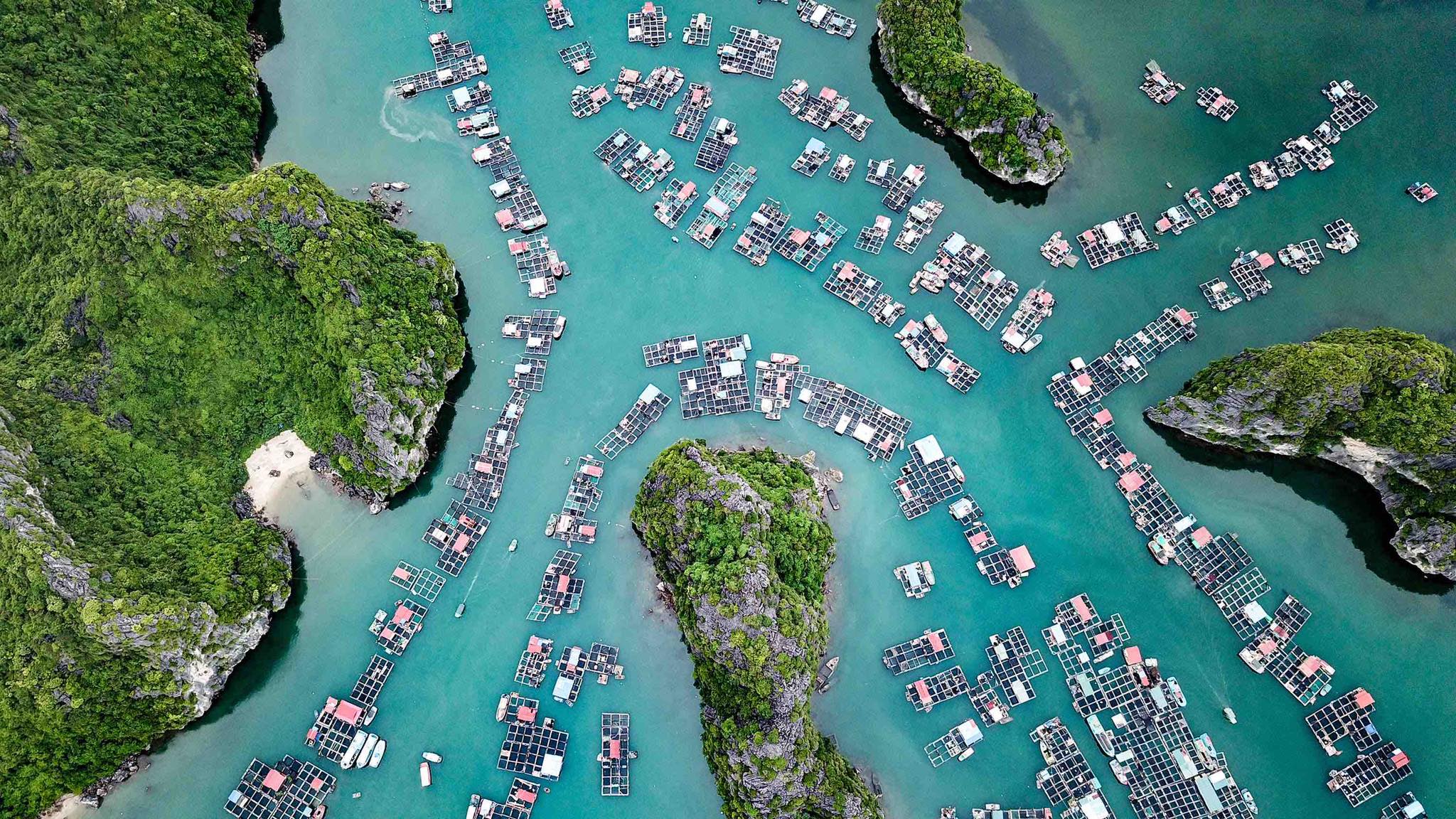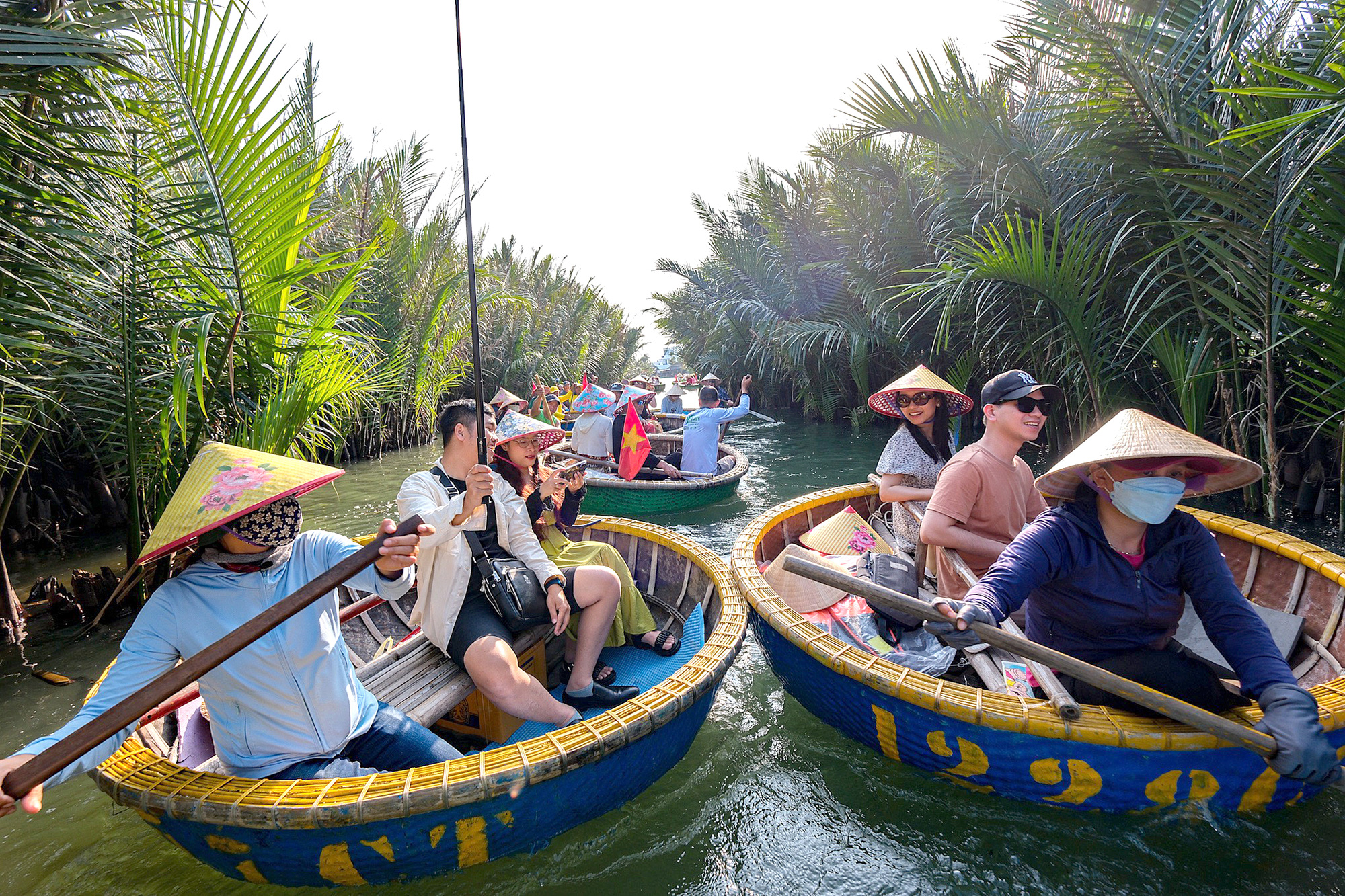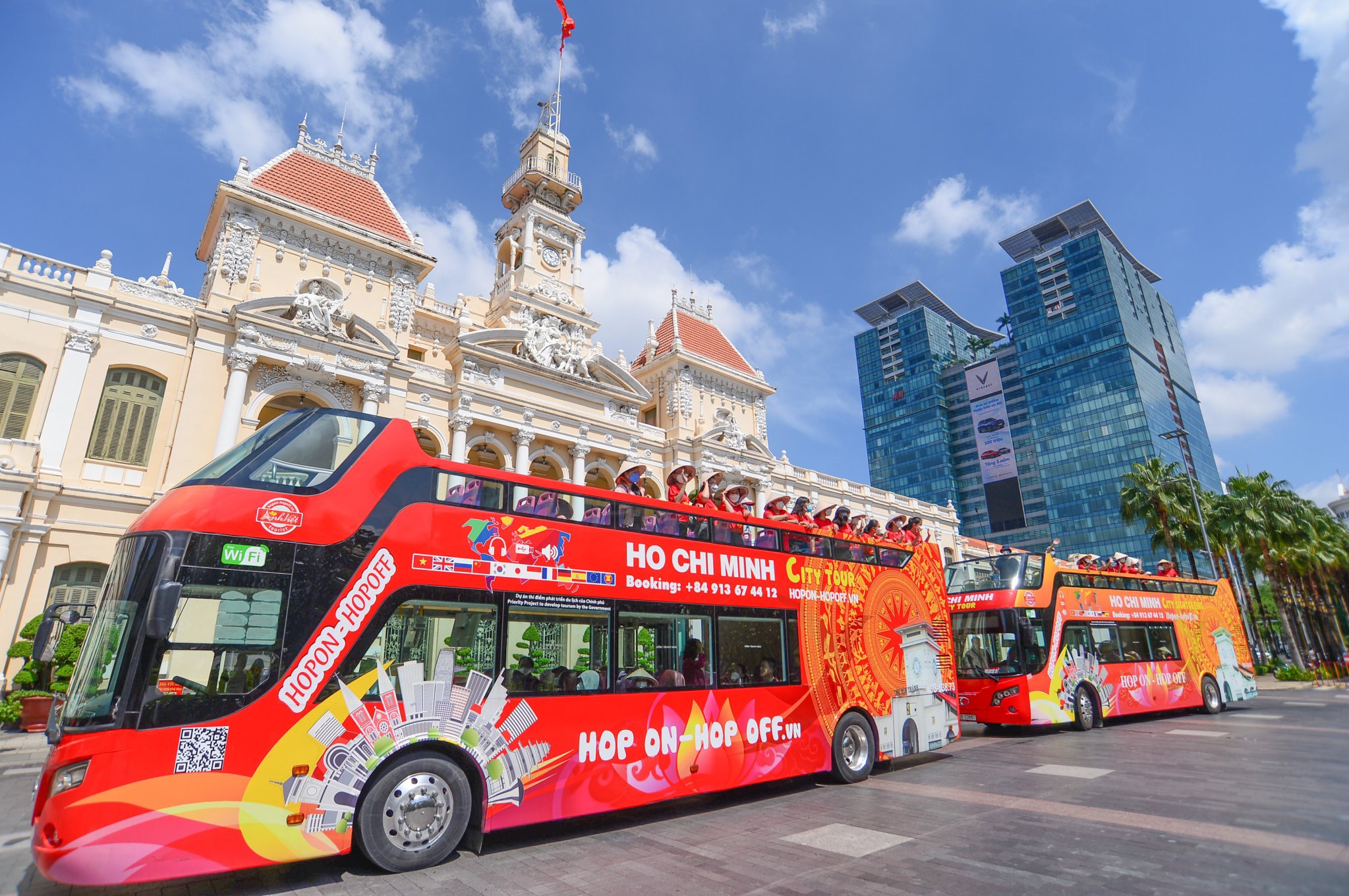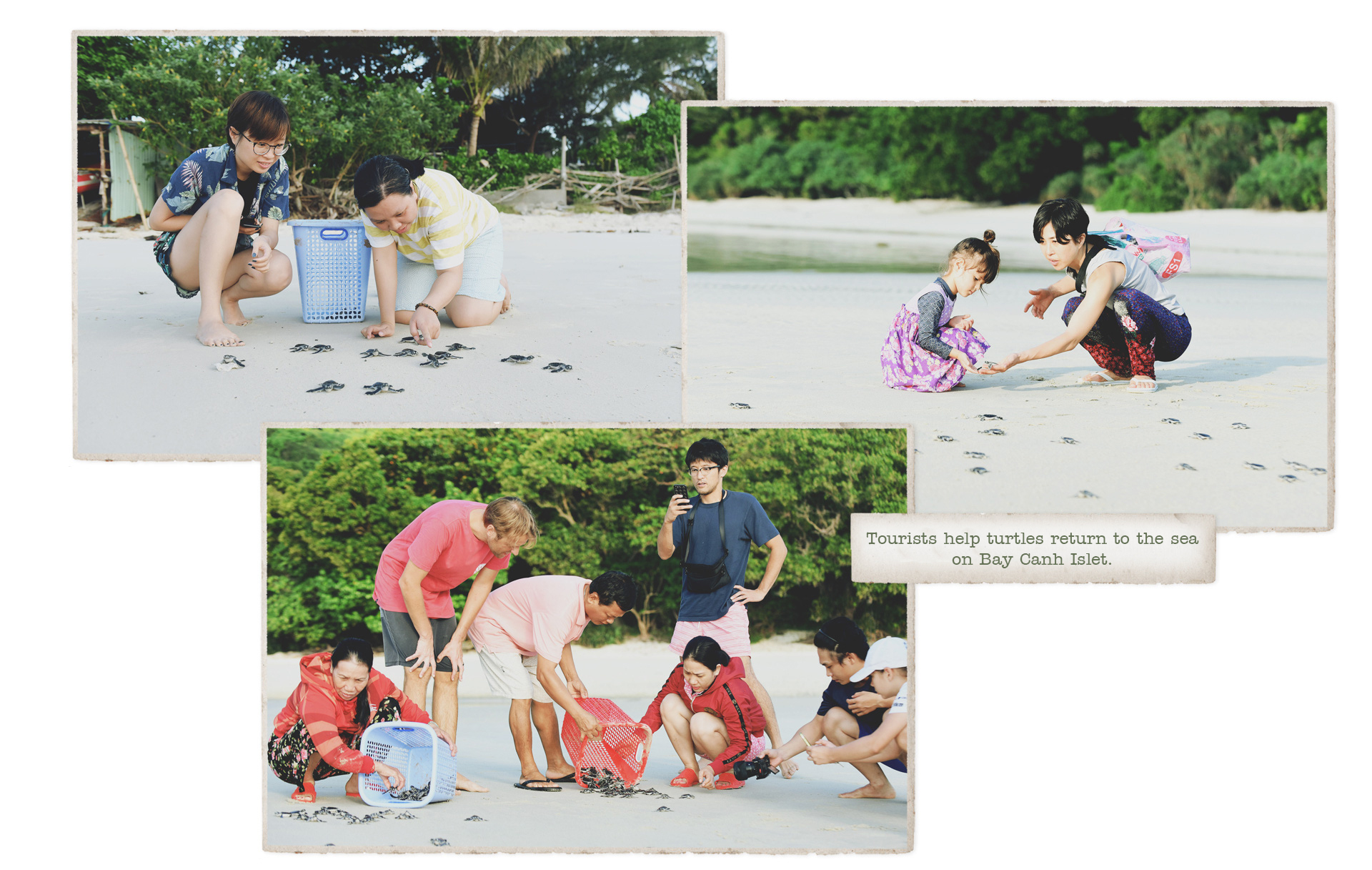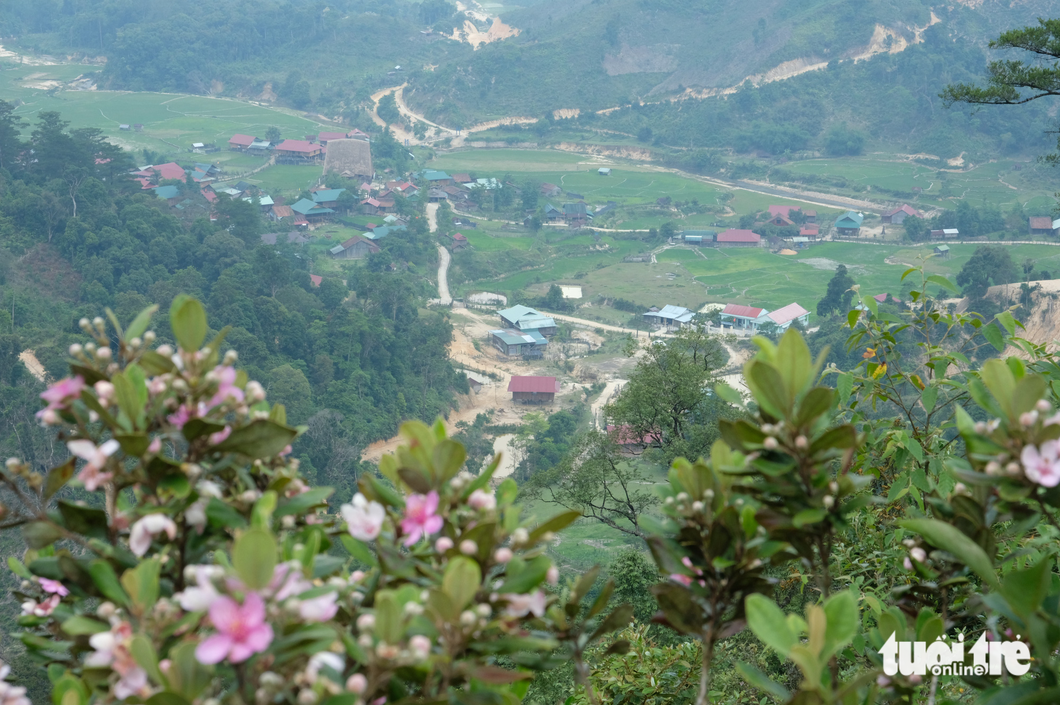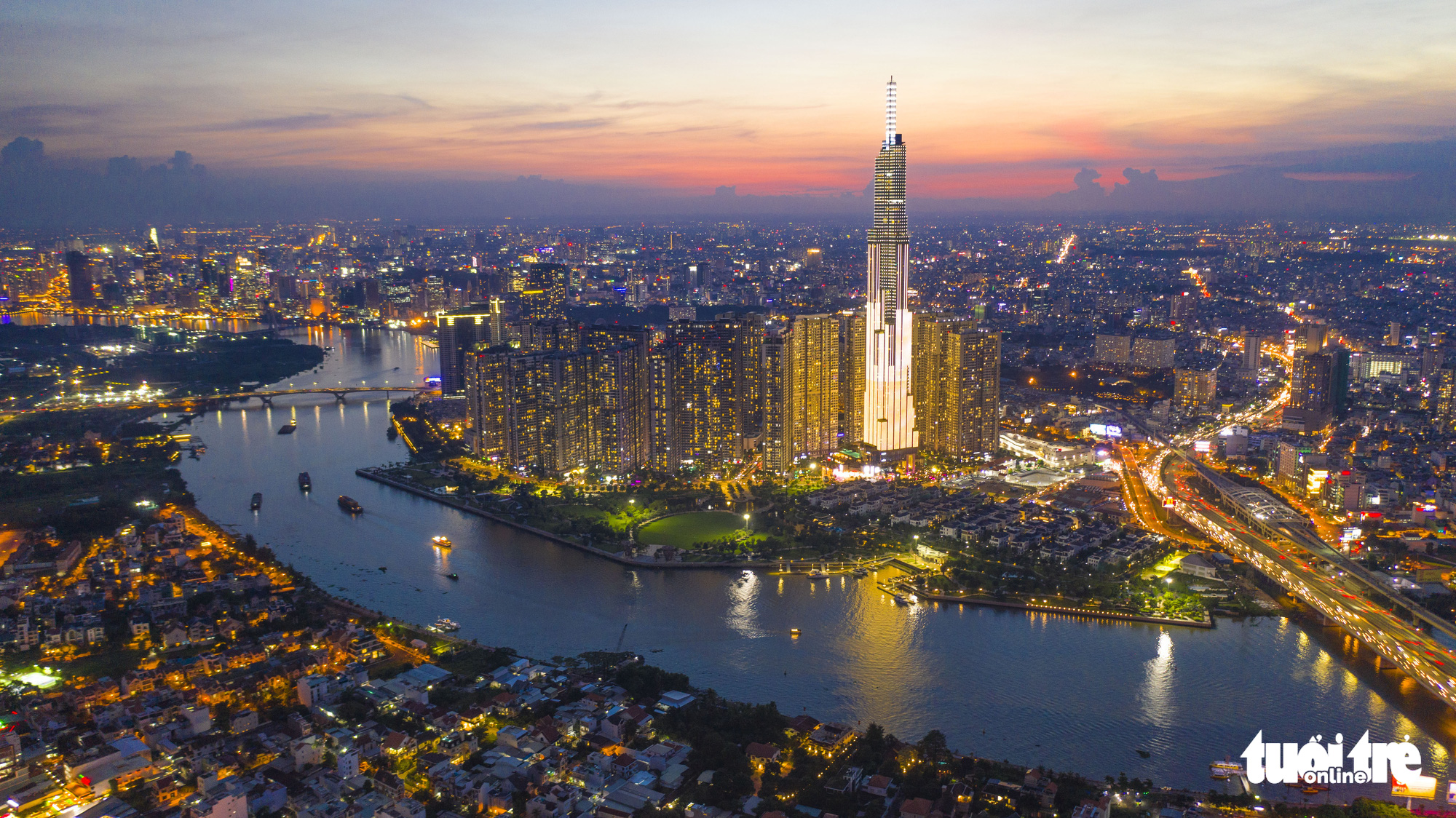Editor's note: Juliet Thuy Nguyen has been living, studying, and working in Australia for the past seven years. She is the founder of a project called Ao Dai Around the World, which is aimed at promoting and showcasing Vietnam's traditional dress, the 'ao dai,' to a global audience.
She has had the opportunity to travel to different parts of the world and share the beauty and significance of the 'ao dai' while also exploring 50 provinces around Vietnam. This allows her to gain a deeper understanding and appreciation of Vietnam's rich history, culture, and natural beauty.
Vietnam's tourism industry has experienced significant growth over the years, attracting millions of visitors from all over the world.
The key trends in the industry include the use of technology, sustainable tourism practices, experience-based tourism, and luxury tourism. The government recognized the potential of these trends and has launched initiatives to promote them.
|
|
| Tourists take a boat tour while visiting Hoi An City in Quang Nam Province, central Vietnam. Photo: Nam Tran / Tuoi Tre |
Technology
The use of technology is a significant trend in Vietnam's tourism industry. Online tourism, also known as e-tourism, refers to the use of digital technologies, including the Internet and mobile devices, to plan, book, and experience travel-related activities. This includes researching and booking flights, accommodations, and activities, as well as accessing travel information and reviews. Online tourism has become increasingly popular in recent years due to the convenience and accessibility of digital technologies.
The Vietnamese government has been proactive in digitizing tourism services and developing smart tourism, aiming to provide visitors with more convenient and personalized services. For instance, mobile applications have been developed to offer information on tourist attractions, services, and online booking systems for tourist activities. The integration of technology in tourism services is a critical factor in enhancing visitor experiences, and it is in line with trends in other Asian countries, such as Japan and China, where cashless and mobile payments have become common payment methods for tourist services.
|
|
| Tourists join an open-top double-decker bus tour in Ho Chi Minh City. Photo: Quang Dinh / Tuoi Tre |
Sustainable tourism
Sustainable tourism practices have become increasingly important in Vietnam's tourism industry. The country's thriving tourism industry attracts millions of visitors every year, and it is crucial to minimize the negative impacts on the environment and local communities. Sustainable tourism practices aim to create a balance between economic, social, and environmental factors, ensuring that tourism development is sustainable in the long run. This trend is also observed in Thailand, where the government has launched initiatives to promote sustainable tourism practices, such as reducing plastic waste and promoting responsible tourism activities.
Eco-tourism is another sustainable tourism practice that has gained popularity in Vietnam. Eco-tourism focuses on promoting conservation efforts and minimizing the negative impact of tourism on the environment. The government has developed eco-tourism products, such as tours to national parks and nature reserves, and has promoted eco-friendly accommodations.
|
|
| Tourists help turtles return to the sea on Bay Canh Islet in Con Dao District, Ba Ria - Vung Tau Province, southern Vietnam. Photo: Tuoi Tre |
Experience-based tourism
Experience-based tourism is another key trend in Vietnam's tourism industry. Visitors are increasingly looking for unique experiences that allow them to immerse themselves in the local culture and way of life.
|
|
| The rose myrtle hill overlooks the breathtaking forest and Vi Ro Ngheo Village in Kon Tum Province in the Central Highlands region of Vietnam. The emerging village, known as Homestay Village, brings tourists unique community-based tourism experiences. Photo: Dinh Cuong / Tuoi Tre |
Local government has recognized the potential of cultural tourism, which can showcase Vietnam's unique cultural heritage. It offers visitors a unique opportunity to experience the country's cultural heritage and local way of life.
Mai Chau and Sa Pa are two destinations in Vietnam that offer excellent examples of experience-based tourism.
Mai Chau, located in the northwest of Vietnam, is a rural district that is home to ethnic minority groups such as the White Thai and H'mong people. Visitors can experience the local way of life and culture by staying in traditional stilt houses or participating in local activities, such as rice harvesting, weaving, cooking, and attending cultural performances, such as dances and music shows.
Sa Pa, located in the northeast mountainous region of Vietnam, is another destination that offers a unique experience of Vietnam's cultural heritage. Sa Pa is home to a diverse range of ethnic minority groups, each with its unique culture and traditions. Visitors can experience the local way of life and culture by staying in homestays, participating in local activities such as farming, handicrafts, and cooking, and hiking in the surrounding mountains.
By participating in these activities, visitors to those places can learn about the local culture, support the local economy, and contribute to the conservation of the environment.
Luxury tourism
Luxury tourism is also a growing trend in Vietnam's tourism industry. Visitors are looking for high-end experiences, such as luxury accommodations, fine dining, and exclusive tours.
The Vietnamese government has recognized the potential of luxury tourism in attracting high-spending visitors and has encouraged the development of luxury tourism products and services.
The Southeast Asian country has seen an increase in the number of luxury hotels and resorts, such as the Four Seasons Resort The Nam Hai in Hoi An and the Amanoi in the south-central province of Ninh Thuan. These hotels offer high-end services and amenities, including private villas, personalized butler services, and exclusive tours.
In comparison to other Asian countries, such as Thailand and Japan, Vietnam's tourism industry is still in its early stages of development. However, the country has made significant progress in recent years, attracting millions of visitors from all over the world.
By staying up-to-date with the latest trends in the industry, such as the use of technology, sustainable tourism practices, experience-based tourism, and luxury tourism, Vietnam can maintain and enhance its position as a top tourism destination.
The government's initiatives to promote these trends are crucial in attracting responsible tourists who are interested in experiencing the country's unique culture and contributing to the conservation of the environment.
|
|
| A bird’s-eye view of Ho Chi Minh City. Photo: Quang Dinh / Tuoi Tre |
Like us on Facebook or follow us on Twitter to get the latest news about Vietnam!



